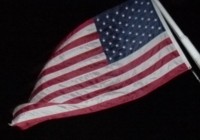Charleston South Carolina
On the news we'd been watching Charleston beset by yet another Hurricane and storm surge so we weren't sure what to expect. As it turned out the harbour wall had been topped by the storm surge but apart from reeds washed over the wall there seemed to be little other physical damage except to a couple of the large houses exposed to the sea.
Charleston - Click on this picture to see more
Charleston too began as a British settlement. It was founded earlier than Savannah, in 1670, as Charles Town, after King Charles II. The town commands a large harbour and was sighted with fortification in mind, originally surrounded by a wall and a moat. The longest street in town remains King street.
Some of the early fortifications are under the present city and are of interest to archaeologists - and to tourists like us. These historical artefacts illustrate the history of the city from its inception.
American Indians had long been exported as slaves by the Spanish and French. Within ten years one of the principal trade goods of the new colony was slaves, initially American Indians sold to the West Indies. But Africans were more submissive and better workers and soon preferred both as house servants and for heavy work. When reading the contemporary sources they might be discussing breeds of cattle rather than other human beings. By 1708 slaves outnumbered the European population in Charleston. This black majority continued right through until modern times when the ratio slowly reversed, until today whites outnumber blacks two to one.
I first visited Charleston in the late 1970's and was appalled to see the concrete boxes, like storage units, that served as black housing in rural areas while the city boasted some of the finest mansions in America. This time I was relieved to see that this is no longer the case, although we did see a black woman entering a garden gate dressed exactly like the servants in the movie: The Help.
Charleston played an important part in the American Revolutionary War. The City did a great deal of trade with Britain, at first exporting hides and tobacco, followed by rice and indigo (Indigofera tinctoria) used for fabric dye before synthetic dyes were developed. Cotton followed, made more economic by Eli Whitney's 'Cotton Gin'. These raw materials all helped to feed Britain's ravenous (or were they Blake's) 'dark satanic mills'. Thus the American loyalists and British forces imagined that the burghers of Charleston would support them and oppose the revolutionaries, when it came to the test. But this was not to be. London was not popular. They'd tried to constrain the City's principal business - slavery. The burghers and country squires sided with their slave owning fellow revolutionaries. Nevertheless Charleston was besieged and fell to the British in 1780 and was occupied for nearly two years. The old Exchange and Provost, that is now a museum, was used as a gaol.
In 1794 the slave trade was prohibited in the Atlantic and in 1808 all importation of slaves was banned in the US. But American ships refused to permit British inspection and slave smuggling remained a profitable enterprise.
According to Wikipedia:
| The city's commitment to slavery was the primary focus of writers and visitors: a merchant from Liverpool noted in 1834 that "almost all the working population are Negroes, all the servants, the carmen & porters, all the people who see at the stalls in Market, and most of the Journeymen in trades"... Slave-ownership was the primary marker of class and even the town's freedmen and other people of color typically kept slaves if they had the wealth to do so..." Visitors commonly remarked on the sheer number of blacks in Charleston. |
So you can understand that when that northern upstart Lincoln proposed the very thing for which they had taken up arms against the British, they took their bat and ball and went home.
Those of you who read my short history above will know that the Confederate States of America was declared on the eve of Lincoln's inauguration and that the Civil War began in Charleston when the local militia decided that it would be fun to take over the land based forts and begin shelling the Fort Sumter, the island that was still in Union hands.
Given the present enthusiasm for pulling down statues of Southern heroes it's odd that one still stands in the park on the point facing the fort, celebrating its subsequent defence against the Union. The inscription reads: "To the Confederate defenders of Charleston - Fort Sumter 1861-1865 - Count them happy who for their faith and their courage endured a great fight".
Most striking is the male figurer's camp pose. The artist's boyfriend perhaps? And who is the larger protective female/goddess behind him - his mother?
As war memorials go it's so unusual I took several photos of it and looked it up. It was erected in 1932, nearly 70 years after the Civil War had been lost, and was unveiled by four virtuous young 'Southern Belles' from Confederate families. I wonder if they blushed when the sheet came off?
Clearly the 'great fight' was still alive in the minds of the eight thousand people of Charleston who attended its dedication.
The Confederate defenders of Charleston - Fort Sumter 1861-1865
Part of the United Daughters of the Confederacy marker series
In addition to enjoying a harbour walk, we made a tour of the historic mansion area and visited both the Exchange and Provost Building, now a museum, and meeting place for the Daughters of the Revolution (or is it the Confederacy) and the old Slave Market, that I talked about the history above.
Charleston Museums - Click on this picture to see more
Our next flight would be to New Orleans where we would then pick up another car to drive to Lafayette, Houston and Dallas

